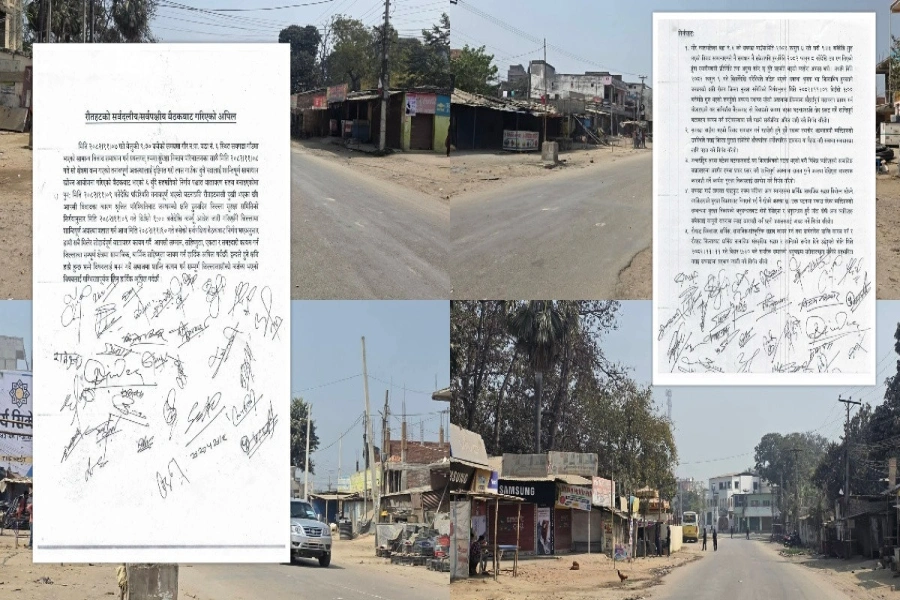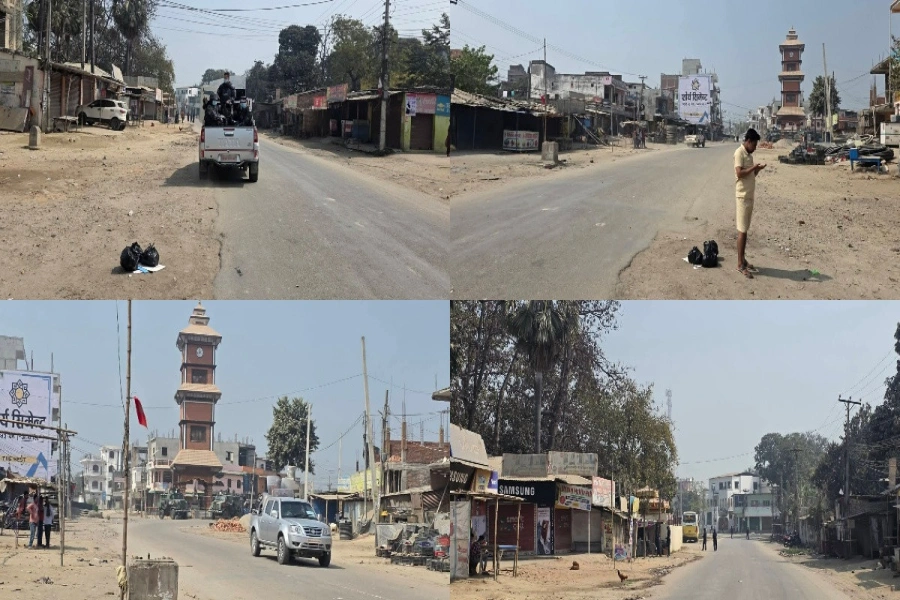KATHMANDU, Jan 24: The Supreme Court (SC) has ruled that authorities must not detain individuals who file appeals from jail due to their inability to post bail if their case is not resolved within six months. The full text of the verdict, issued on January 10 by the extended full bench of Chief Justice Prakash Man Singh Raut and Justices Binod Sharma, Abdul Aziz Musalman, Sunil Kumar Pokharel, and Nripa Dhoj Niraula, outlines this decision.
When individuals appeal a lower court's decision at a higher court, authorities often compel them to remain in detention if the case is not resolved on time. However, the law requires authorities to release individuals whose cases remain unresolved within six months of filing the appeal. Despite this legal provision, its implementation remains difficult, forcing individuals to approach the SC with writ petitions to seek redress.
Giving a verdict on Rudra Prasad Dahal's case, the SC has ruled to release him from custody. Dahal, imprisoned at Dillibazar Jail for failing to post a bail and appeal against a Special Court decision imposing a fine of over Rs 100 million in a corruption case, will also have his passport withheld. The court has restricted him from traveling abroad without permission until the case is resolved.
New Technology Can Revolutionize Agriculture in Nepal

The petitioner requested the court to make a decision based on Section 137(6) of the National Criminal Procedure (Code) Act, 2017. Section 137(6) states, "If an individual files an appeal while remaining in custody due to the inability to post bail or guarantee, and if the court does not decide the appeal within six months from the registration date, the court must release the individual from custody after that period and set a date for further proceedings."
Initially, the Special Court demanded a bail of Rs 1.8 million from Rudra Prasad. He provided a bank guarantee and appeared on the scheduled dates. The Special Court then delivered its verdict on March 22, 2023, sentencing him to eight years in prison and imposing a fine of Rs 106.42 million.
After he failed to file an appeal by providing the required amount as per the verdict, authorities sent him to jail. While in jail, he filed an appeal at the SC on January 22, 2024. However, the court has not decided his case even after six months. His case is currently under consideration at the SC. The full bench of the SC’s verdict also mentions the banking offense case of Mahendra Prasad Mishra as a precedent in the decision.
The law requires the court to make a decision on the appeal of individuals who remain in custody due to their inability to provide bail or guarantee within six months. The verdict states, "If the court cannot make a decision within six months, it has failed to fulfill its duty and responsibility, and this should not infringe upon an individual's right to personal freedom." It further mentions that if the case is not resolved within six months, the provisions of Section 137(6) cannot be applied, which is legally unacceptable.
Section 54 of the Prevention of Corruption Act, 2002 outlines various legal provisions that apply after a verdict on cases where a court sentences an individual to imprisonment. According to Section 155 of the National Criminal Procedure (Code), the court does not allow an individual to be released from custody by paying a sum of money in place of a prison sentence in corruption cases, even after the final verdict.
Section 159(4) of the code prohibits taking any action to pardon, suspend, modify, or reduce the sentence of a convicted individual in a corruption case. Section 24(3) of the Criminal Offenses (Sentencing and Implementation) Act, 2017, also bars suspending the prison sentence of an individual convicted in a corruption case.
Section 29(1) of the same Act prohibits granting parole to individuals convicted of corruption. Section 37 of the same Act allows the prison authority to reduce a sentence if an individual shows improvement in conduct and serves 50 percent of their sentence, but it excludes individuals convicted of corruption. The provisions of the National Criminal Procedure (Code) do not apply to individuals convicted in corruption cases.





































